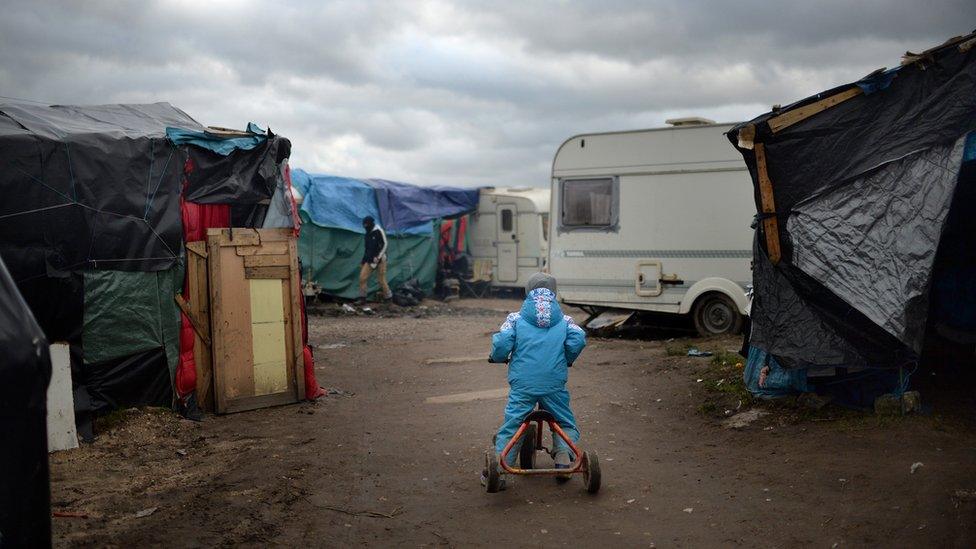Calais children: More youngsters arriving in UK
- Published
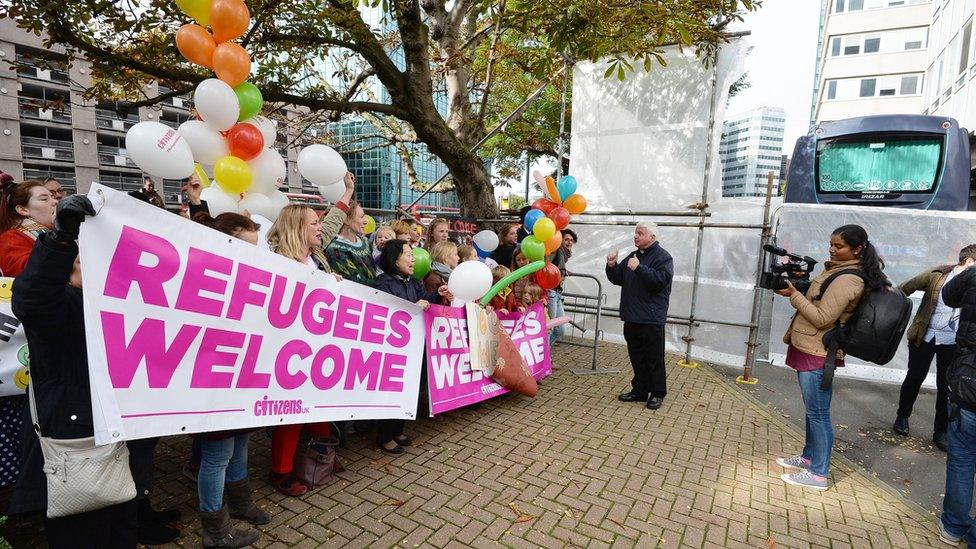
Campaigners from pro-refugee charity Citizens UK welcomed 70 children, who had been brought to the UK from the Calais migrant camp
Children are continuing to arrive in the UK from the migrant camp in Calais, with another three coach-loads expected in Croydon, south London.
They have been coming since Monday - some with family in the UK and others without relatives here, but judged to be vulnerable.
French officials say around 200 children have left the so-called Jungle migrant camp for the UK this week.
The camp is due to close on Monday and its estimated 7,000 occupants moved.
About 10,000 leaflets are being handed out by the French authorities, telling people to report to a reception point where they will be taken to other parts of France and given the opportunity to claim asylum.
But there is concern that some migrants will refuse to go because they still want to get to Britain.
How are child migrants' ages checked?
The desperate children of the Calais Jungle
Migrant children dream of getting to UK - Lyse Doucet
The Calais conversation that left Lily Allen in tears
There have been scenes of violence as some attempt to board lorries bound for the UK, clashing with drivers and police in the process.
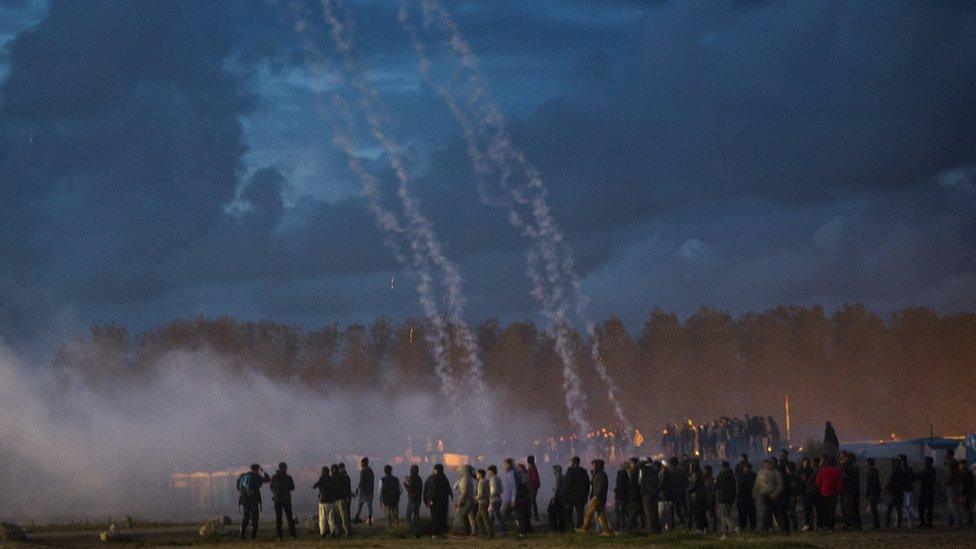
French police have clashed with groups of migrants in the Calais migrant camp, ahead of its demolition on Monday
Of those children who have arrived in Britain, about 50 to 70 are expected to be taken to a hostel in north Devon on either Sunday evening or Monday morning.
Devon County Council said its purpose was to offer a safe and welcoming place for them to stay before being reunited with family members or moved to other parts of the country.
Councillor James McInnes said they would be "vulnerable" young people who would be "frightened" and "exhausted".
Children who have family links have been admitted to the UK under the Dublin regulation - which requires evidence that they have relatives here who can care for them.
Others, without family ties, have arrived under "Dubs amendment" rules which allow particularly vulnerable children - such as girls and those under 13 - refuge in the UK.
The Home Office has refused to comment on claims in the Observer newspaper that some children are being held in an immigration detention unit , externalnear Gatwick airport and others placed in foster care.
Calais "Jungle" camp: The children trying to flee
The arrival of migrant children in the UK earlier this week prompted controversy in newspapers and criticism from Monmouth MP David Davies, with suggestions that some of them looked older than 18.
He said migrants should have their teeth tested to verify their ages. The call was rejected by the government which pointed out such examinations have been described as "inaccurate, inappropriate and unethical" by dental experts.
Chief executive of the Joint Council for the Welfare of Immigrants, Saira Grant, said the process to get children out of Calais had been "shambolic".
She condemned the controversy over the ages, saying: "It creates an artificial distinction which suggests that all the others who fled war, atrocities and persecution are not worthy of our help because they are adults."
But UKIP leadership candidate Raheem Kassam said the government should publish records of the migrants allowed in to the UK.
He told Sky News' Murnaghan programme: "We don't want their faces, we don't want their names attached to these things, but we can show these tests have been done."
The BBC's Richard Galpin reports from the migrant camp in Calais known as the Jungle, which one inhabitant described as "an open prison"
Lord Dubs successfully campaigned for an amendment to the Immigration Bill in April allowing for unaccompanied child migrants to be brought to the UK where they do not have family links but are considered to be at risk.

What is the 'Jungle'?

The Jungle camp is close to the main road to Calais port
The "Jungle" camp is near the port of Calais, and close to the 31-mile Channel Tunnel
Officially, about 7,000 migrants live in the camp - humanitarian groups say the number is closer to 10,000
Despite an increasing population, the camp's size was halved earlier this year
But the camp's population has continued to rise, and reports of violence have increased
Many migrants attempt to hide themselves in cargo vehicles entering the Channel Tunnel
The area has been hit by protests from both locals and truck operators

- Published21 October 2016
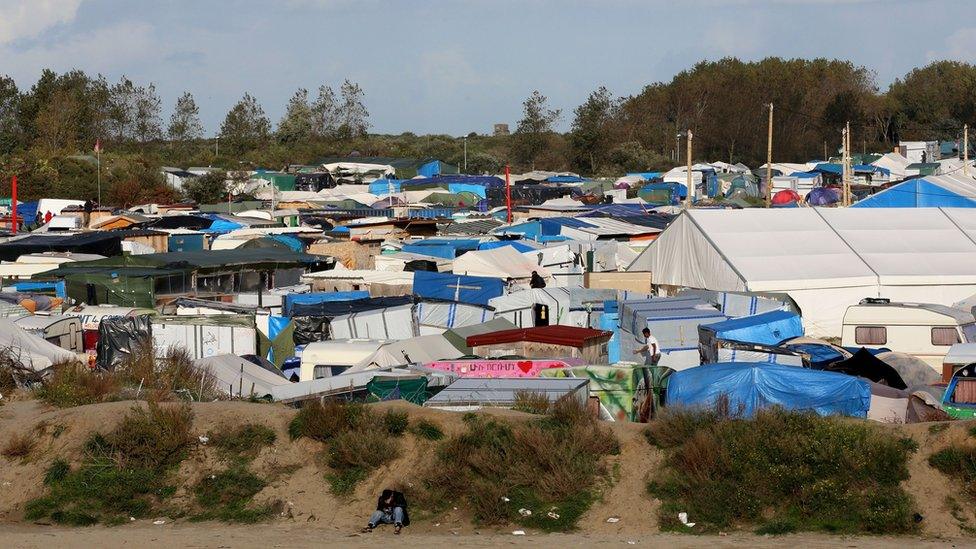
- Published19 October 2016
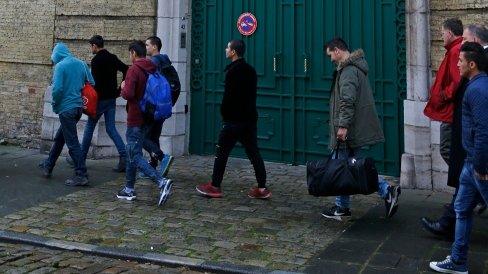
- Published20 October 2016
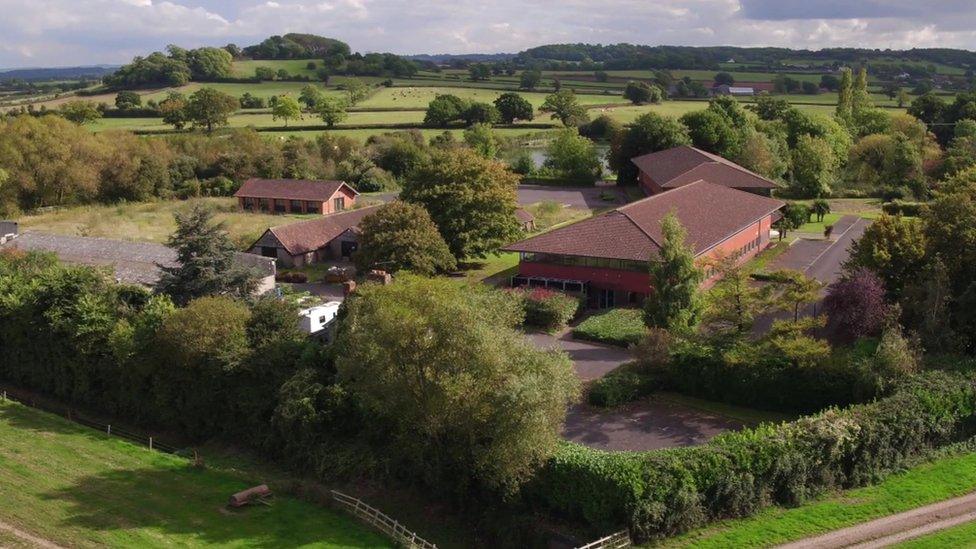
- Published19 October 2016
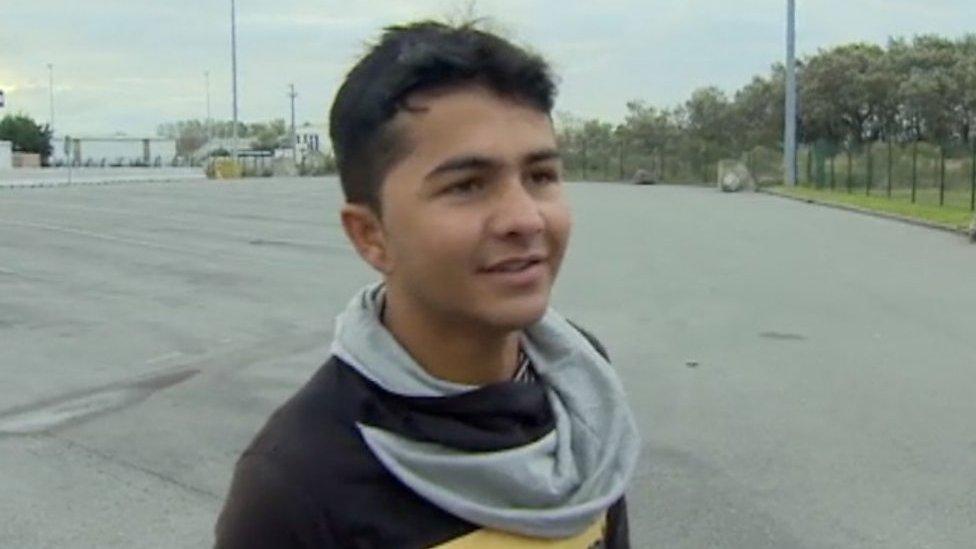
- Published19 October 2016
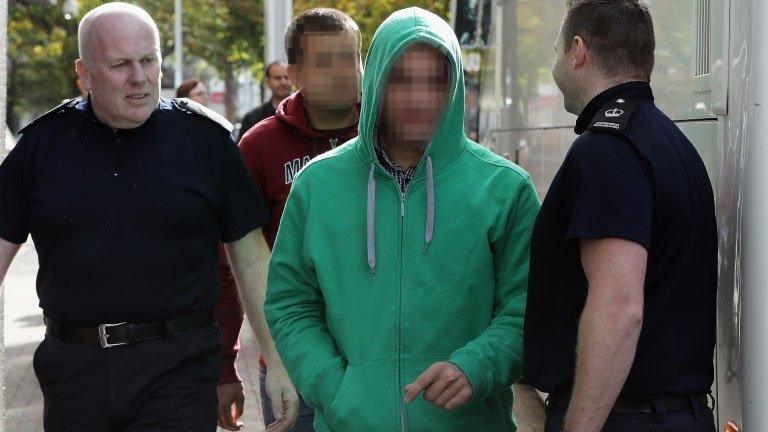
- Published19 October 2016
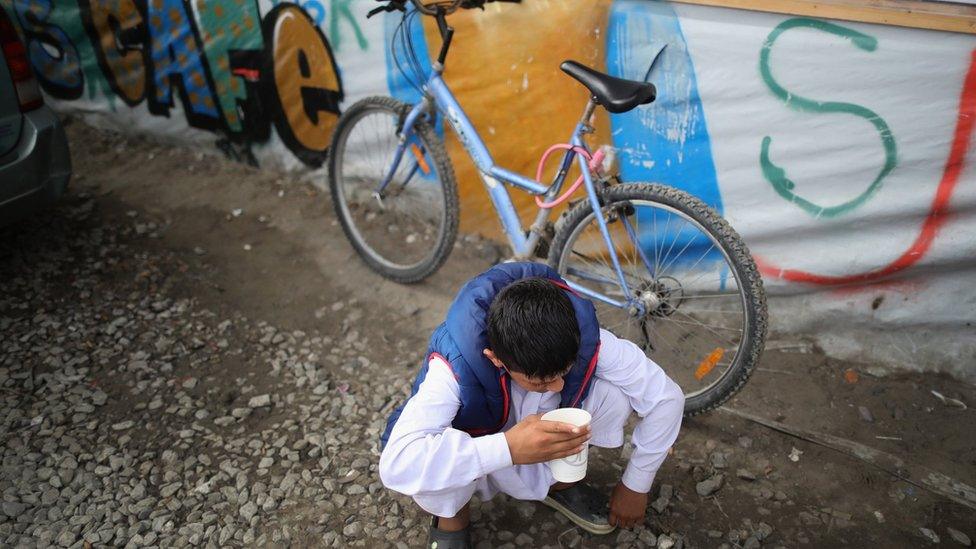
- Published19 October 2016
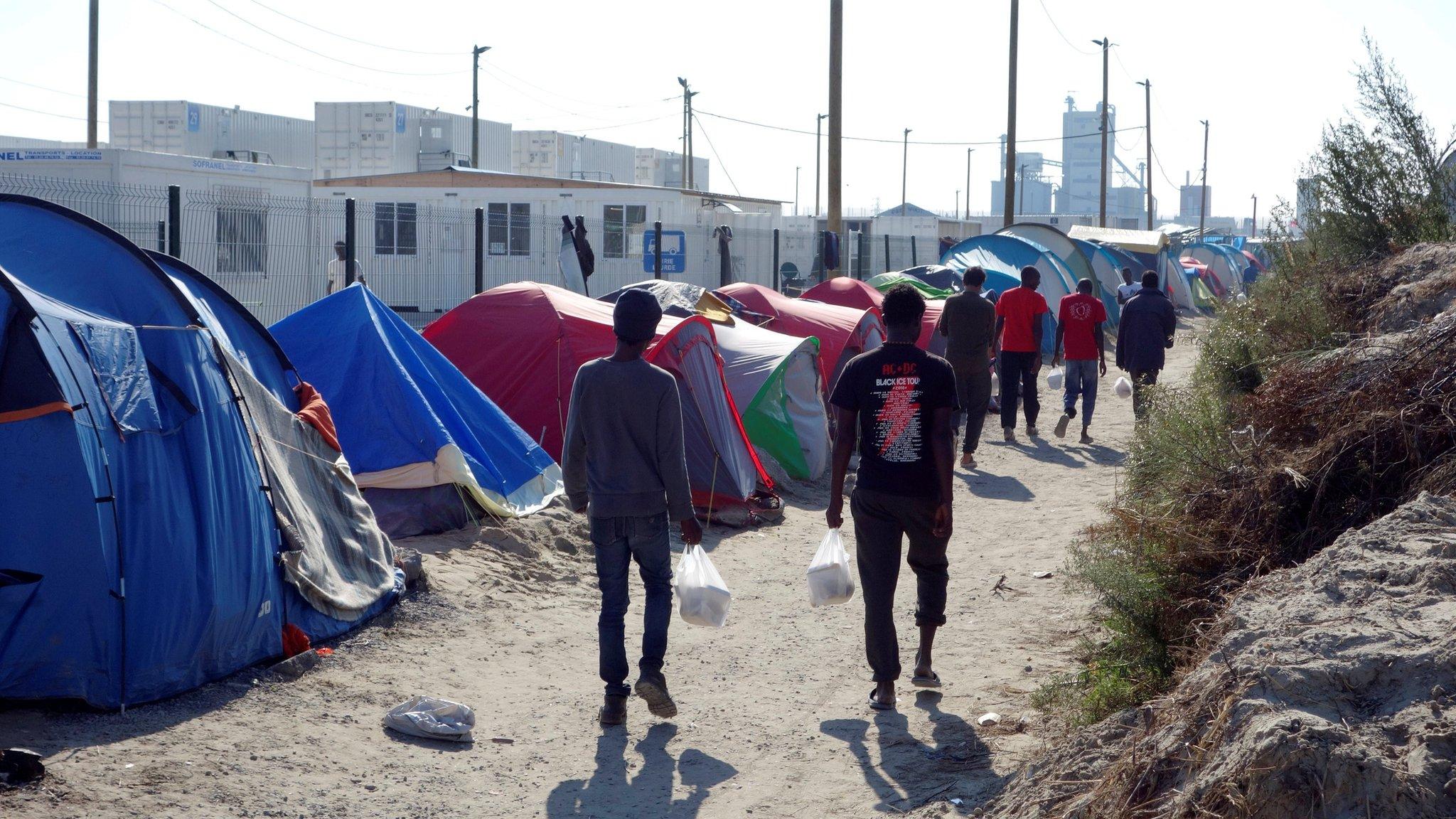
- Published19 October 2016
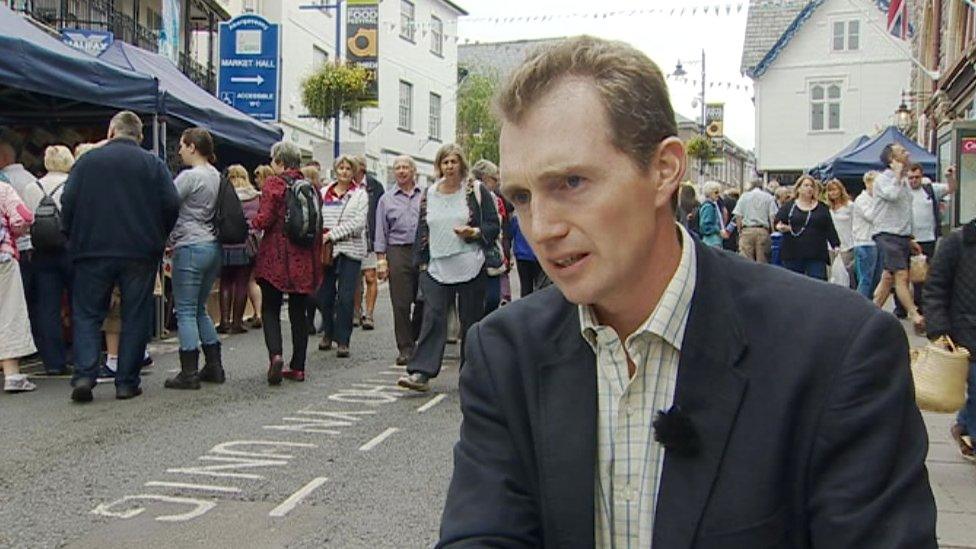
- Published17 October 2016
